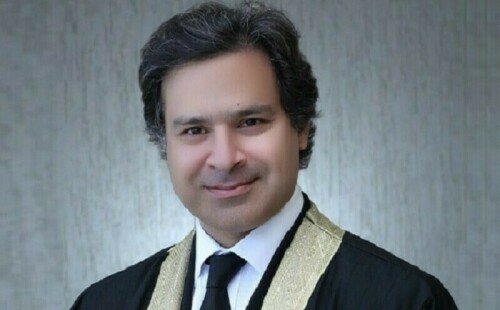ISLAMABAD, Aug 3: Chief Justice of Pakistan Iftikhar Mohammad Chaudhry said on Wednesday that in the presence of 72 sects, the apex court has to give its opinion as to which interpretation of Shariah was acceptable to all. Justice Chaudhry made the observation during the hearing of the president’s reference regarding NWFP’s Hasba bill by a nine-member bench of the Supreme Court. He recalled that in his report on the Qadiani issue, Justice Munir had concluded that Islamic scholars were not unanimous on the definition of a Muslim.
The CJ also clarified that the Supreme Court was not hearing the reference to strike down the Hasba bill but to form an opinion on the questions raised by the president in the reference.
The counsel of NWFP government, Khalid Anwar, argued that the federal government had deliberately dragged the highest court of the country to shift adverse public response to its opposition to the bill away from it.
“This is sad, tragic and should not have happened,” Khalid Anwar observed, adding this was not the intention of the provincial legislators to create an office (mohtasib) to interpret what is Islam and then take action in accordance with that interpretation.
He said the advisory jurisdiction of the apex court had not been invoked by the president on his own, rather on the decision of the federal government, and the questions raised in the reference were not the president’s own views, Khalid Anwar contended.
“The NWFP government has pursued a noble cause by at least endeavouring to listen to the poor to redress their grievances, for which it should be encouraged, especially when it is difficult for them to get justice in this country,” he argued.
Citing his own experience as federal law minister, Khalid Anwar deplored that even widows failed to get timely justice merely because the federal government appealed against orders only to delay matters.
Describing the Council of Islamic Ideology (CII)’s report against the Hasba bill as manipulative, Khalid Anwar said the council subjected every feature of the bill to criticism but not once it declared the bill against the injunctions of Islam.
The council appointed a single member to prepare his findings on the bill after which it discussed and approved the report when they should have discussed and then prepared the report.
He also referred to a 1992 recommendation and a 1996 final report of the council, the text of which was exactly copied in the instant Hasba bill except that the suggestion of the council to introduce punishment of whipping was deleted.
Similarly, powers to be vested in the mohtasib under the Hasba bill were far less than what the council had suggested in its recommendations, he argued. During the course of hearing, the CJ inquired from the NWFP counsel, in how many Muslim countries, out of a total 54, the institution of Hasba was functioning.
About the qualification of an Aalim (scholar) to be appointed mohtasib, who will be holding a certificate of ‘Shahadat-i-Aalmia’ from an institution recognized by the Higher Education Commission (HEC), Justice Sardar Mohammad Raza Khan inquired whether famous scholars, namely, Maulana Maududi, Allama Inayatullah Mashriqi and Abul Kalam Azad, who had no such credentials, fell within the definition of Aalim under the bill.
Khalid Anwar, however, stressed that the Shahadat-i-Aalmia was a recognized qualification and cited the example of former UK Prime Minister John Major who was not even an undergraduate and Winston Churchill who did not go to any university.
In fact, the provincial assembly had hinted at appointing such a person as mohtasib who should have religious background, adding that the duty of the mohtasib would be to inquire into the problems of the people and not to take actions.
The court also cited reports stating that a congregation after Friday prayers destroyed television sets in Charsadda sometime back at which Khalid Anwar regretted that it had become a normal practice in our society to damage private property to vent anger against government policies.














































Dear visitor, the comments section is undergoing an overhaul and will return soon.